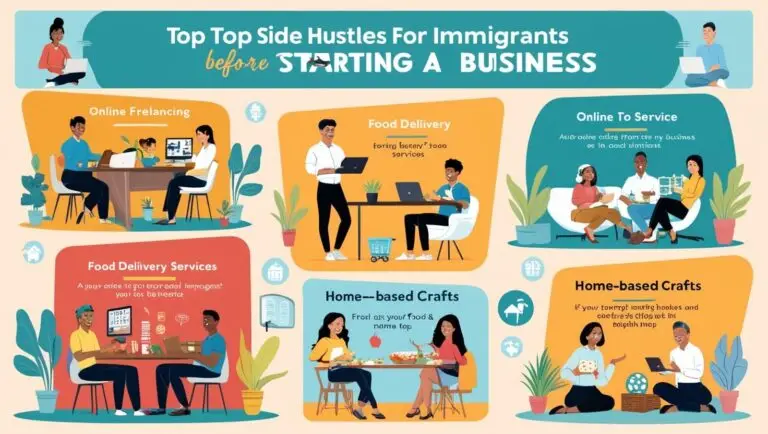Discrimination remains a persistent challenge in the business world, often hindering opportunities for entrepreneurs and professionals from marginalized communities. Immigrants, minorities, women, and other underrepresented groups frequently face bias based on race, gender, nationality, or religion. However, by acknowledging these obstacles and adopting proactive strategies, individuals can navigate and overcome discrimination, fostering resilience and success in the business environment.
Common Forms of Discrimination in Business
1. Implicit Bias
- Subtle, unconscious judgments can affect hiring, partnerships, and business opportunities.
- Example: An employer or client may assume a lack of capability based on ethnicity or accent.
2. Systemic Barriers
- Institutionalized policies and practices may favor dominant groups, making it harder for minorities to secure funding or access resources.
- Example: Studies show minority business owners often face higher loan rejection rates and limited venture capital access.
3. Cultural and Language Discrimination
- Immigrants may encounter stereotypes or exclusion due to differences in communication styles, cultural norms, or accents.
- Example: Entrepreneurs from non-dominant cultures may struggle to integrate into local business networks.
Strategies to Overcome Discrimination in Business
1. Build Confidence and Self-Awareness
- Action: Understand your strengths and value as an entrepreneur or professional.
- Tip: Focus on your unique skills and experiences, turning perceived disadvantages into competitive advantages.
2. Leverage Networking and Mentorship
- Action: Connect with other entrepreneurs, particularly those who share similar experiences.
- Tip: Join cultural organizations, business groups, or mentorship programs for underrepresented groups.
3. Strengthen Your Brand and Visibility
- Action: Develop a strong personal and business brand that highlights your achievements and expertise.
- Tip: Use social media, professional profiles (e.g., LinkedIn), and public speaking engagements to establish credibility.
4. Pursue Education and Training
- Action: Stay informed about industry trends and equip yourself with the latest knowledge.
- Tip: Take courses on business leadership, communication, or cultural intelligence to build credibility and adaptability.
5. Seek Out Diverse Funding Opportunities
- Action: Apply for grants, microloans, or funding programs tailored to minority entrepreneurs.
- Tip: Look for organizations such as the Minority Business Development Agency (MBDA) or local government programs supporting diversity in entrepreneurship.
6. Advocate for Yourself and Others
- Action: Stand up against unfair treatment and advocate for inclusive policies within your industry.
- Tip: Build coalitions with others facing similar challenges and use collective voices to drive change.
7. Build Inclusive Workplaces
- Action: As a business owner, create an environment where diversity is valued and employees feel respected.
- Tip: Train staff on unconscious bias and develop clear anti-discrimination policies.
Real-Life Success Stories of Overcoming Discrimination
1. Hamdi Ulukaya – Founder of Chobani (USA)
- As a Turkish immigrant, Ulukaya faced skepticism when he founded Chobani, a yogurt company. Despite these challenges, he embraced diversity by hiring refugees and immigrants, creating a globally successful brand.
2. Abbey Wemimo – Co-Founder of Esusu (USA)
- Nigerian-born Wemimo co-founded Esusu to address systemic financial discrimination. By focusing on helping immigrants build credit, his company has grown into a billion-dollar enterprise.
3. Margaret Busby – UK’s First Black Female Publisher
- Margaret Busby overcame racial and gender biases to establish Allison & Busby, a publishing company that elevated diverse voices in British literature.
4. Kanya King – Founder of the MOBO Awards (UK)
- As a British-Ghanaian entrepreneur, King created the MOBO Awards to celebrate music of Black origin, challenging industry biases and promoting cultural diversity.
Overcoming Discrimination as a Collective
1. Advocate for Inclusive Policies
Support diversity initiatives in your industry to pave the way for future entrepreneurs.
2. Build Support Networks
Organizations like Black Founders Network, Lean In Circles, and local immigrant groups provide mentorship and resources to overcome challenges collectively.
3. Promote Awareness
Challenge stereotypes by sharing your success stories and amplifying the voices of others.
Discrimination in the business world is a reality for many immigrants and underrepresented groups, but it doesn’t have to define their journey. By focusing on personal development, leveraging networks, and standing up against biases, entrepreneurs can overcome barriers and achieve success. Every challenge conquered paves the way for a more inclusive, equitable business environment.
Would you like assistance in creating a follow-up piece about building inclusive workplaces or resources for minority entrepreneurs?






